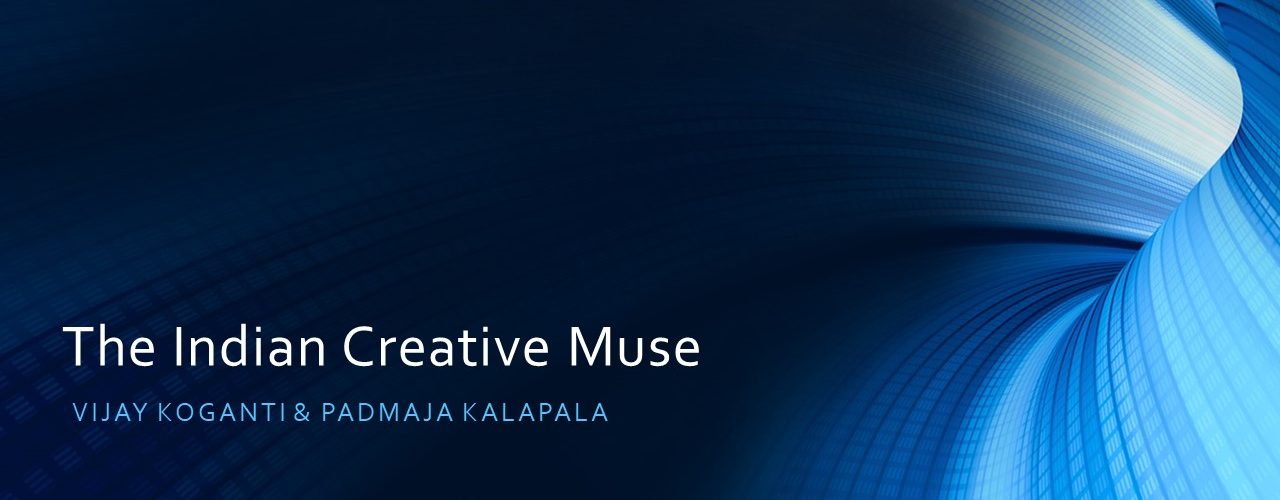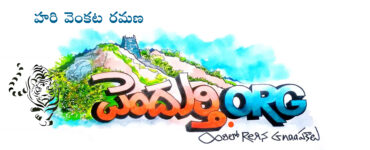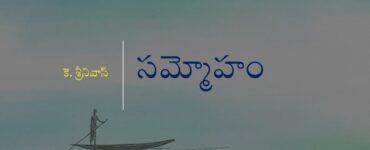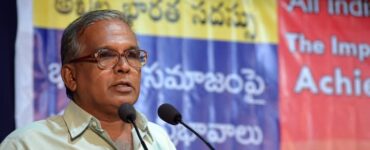Would any put out one of the eyes
And obscure the view?
If women become learned and wise
The world will be rid of ignorance.
(Maraucu)
These are the words of the famous poet Chinnaswami Subramania Bharati, (1882-1921), popularly known as Subramania Bharathi who is known for his revolutionarily novel ideas and patriotic fervour. An exceptional Indian poet during its fight for independence, he is the most revered writer in Tamil and is hailed as the ‘pioneer’ of modern Tamil literature.
Born into a learned Brahmin family, Bharathi became a Tamil scholar at an early age, in spite of the fact that he had received little formal education. He had started writing poetry by the age of seven and his poetry had always been driven by social justice. Despite the fact that he was surrounded by the most conservative milieu in all the aspects he had displayed the most modern outlook in all the societal, political and cultural facets. As he was forced to enter into a very early ‘child marriage’, he had to give up his pursuit of education and take up life with all its responsibilities. As language was the vehicle for his livelihood, he worked as an editor of many newspapers and magazines. He was an adept at almost twelve languages and could use all of them with equal dexterity.
Subramania Bharathi was inspired by Shelley’s poetry for its emphasis on ‘individual liberty’, and penned forth his patriotic poetry with a unique emphasis on the need for individual freedom. The force of his expression with his exceptional power of words led to a discourse of revolutionary compositions on freedom and national unity. Social reform is a recurrent theme in Bharathi’s works. For instance, ‘Puthia Athisoodi’ (meaning “new beginnings”), a compilation of prose and poetry for children, espouses ideas such as ‘curse astrology,’ ‘learn astronomy’ and ‘modernize ancient scriptures.’ Many of his poems dealt with education, nature, and dignity of labor.
He translated several works from English into Tamil for several magazines and later joined the Tamil daily newspaper Swadesamitran. This exposure to political affairs and his continuous engagement with and awareness of the social fabric of India in those days led to his involvement with the Indian National Congress party, due to which he was under the surveillance of the British and thus was forced to run away to Pondicherry, a French colony, where he lived in exile from 1910 to 1919. During this time Bharathi’s nationalistic poems and essays became highly popular. Upon his return to India in 1919 he was briefly imprisoned and later rejoined Swadesamitran. Bharathi’s best-known works include Kaṇṇan pāṭṭu (1917; Songs to Krishna), Panchali Sapatham (1912; Panchali’s Vow), and Kuyil pāṭṭu (1912; Kuyil’s Song). Many of his English works were collected in Agni and Other Poems and Translations and Essays and Other Prose Fragments (1937).
An incident during his participation in the meeting of Indian National Congress changed his attitude and outlook towards women. He came under the influence of Sister Nivedita who asked him about his not being accompanied by his wife. Bharathi responded that ‘women were not allowed in public spaces’. Her immediate response opened his eyes. She said that ‘a society cannot win its freedom when the other half is enslaved’. These words inspired him to fight for the emancipation of Indian women.
Emancipation of women was the major theme in Bharathi’s works, which visualized ‘the new woman’ as an embodiment of ‘Shakti’, a full-fledged partner of man to build a new social order through mutual respect and cooperation. He visualized a modern Indian woman at the forefront of the society. He was of the strong opinion that the world will prosper in knowledge and intellect only if both men and women are treated on equal terms.
“The new age women will learn many intellectual texts.
They will set the base for many scientific discoveries that facilitate human life.
They will expunge all backward superstitions in the society.”
Bharathi opposed enslavement of women by men threatening them with violence as a cruel practice across the ages by the patriarchal society. Bharathi’s portrayal of woman is “the civilizer and, therefore, the spiritual superior to man.”
As the editor of Chakravartini, Bharathi announced in his magazine that the goal of Chakravartini was to “improve” the situation of women in Tamilnadu. He added a ‘kural’ under the title of the magazine:
“when knowledge of women is raised, womanhood becomes great;
when this happens, the country becomes great”.
He deified woman in his thoughts and it is reflected in his perception of India as ‘Mother’ when he says :
“She has thirty crores of faces, but her heart is one;
she speaks eighteen languages, yet her mind is one“;
Bharathi focused on the plight and predicament of women and how women ought to be educated for their liberation and empowerment. For him freedom, autonomy and independence to women, as well as a state of fearlessness are the pre-requisites for women’s liberation.
In his own words:
“Women are the mothers of the nation. If we made them the bonded laborers, the children they give birth to would also be, like their mothers, bonded laborers. These children, when they see the people of the foreign nations, become physically fearful and mentally confused… My only prayer is that these women must more necessarily be trained to be self-reliant, independent, free, fearless, courageous and patriotic.”
His women sing of their self dependence in their “Kummi Dance-Song” [Kummi Paattu]. Modern woman envisaged by Bharathi rejects tradition which means refuting the repeated ill-treatment and injustice within marriage and she chooses modernity. His woman has an ingenious role in the society as well as family which is presented in his “The Kummi of Women’s Freedom” (“PenkaZ ViIutalaik Kummi”) . His woman sings– “Let us rejoice in praise of womanhood / Let us dance to the cry of ‘Victory to Women’” and thus claims her status and rights as an individual which Bharathi penned as “Glory of Womanhood” (Penmai) .
“The New Woman” (“Puthumai Pen”) celebrates the emancipation of women. “Women too have the right to be free”, “Clothed in virtue, in woman’s form here / Is the very goodness, Our Mother”. They will learn “many and many lore” and “many and many a deed they will do”. They demand their deliverance saying, “We Demand Liberation” (“ViIutalai VenIum”), “Let us fail not when Dark powers / Strike to make an end”.
He sees the liberation of his country from the foreign rule as the liberation and empowerment of Paanchali (women). Bharathi reworks, reinterprets and re-locates The Mahabharata in a larger national context into Panchali Saptaham. Bharathi observes that the freedom Paanchaaliis the freedom of India and Panchali, a woman, becomes an image and metaphor to liberate India from the British imperialism and also from social orthodoxy and domestic oppression.
Premananda Kumar observes,
After the final insult to womanhood, Draupathi takes her uncompromising vow on behalf of the oppressed womanhood. Bharathi is no doubt forecasting a new chapter for Indian Womanhood, when every woman would become, not only a Mother, but Mother Might, the power that is indispensable for the life of man on earth.
***









Add comment